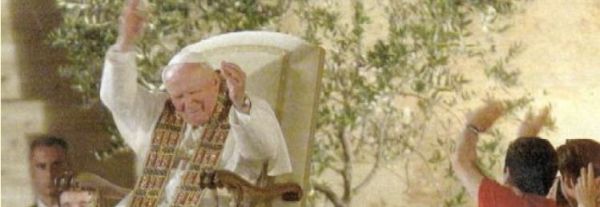Christ, who commanded to pray for the labourers of the harvest, also called them personally. His words of call are preserved in the treasury of the Gospel: "Come after me and I will make you fishers of men" (Mt 4:19). "Come and follow me" (Mt 19:21). "If any man will serve me, let him follow me" (Jn 12:26). These words of call are entrusted to our apostolic ministry and we must make them heard, like the other words of the Gospel, "to the ends of the earth" (Acts 1:8). It is Christ's will that we make them heard. The People of God have a right to hear them from us.
The admirable pastoral programmes of the individual Churches, the Vocations Works which, according to the Council, must dispose and promote all pastoral activity for vocations (cf. Optatam Totius, 2) open the way, prepare the good ground for the Lord's grace. God is always free to call whom he wills and when he wills, according to the "extraordinary riches of his grace through his goodness towards us in Christ Jesus" (Eph 2, 7). But ordinarily he calls through our persons and our word. Therefore, do not be afraid to call. Go down among your young people. Go out personally to them and call. The hearts of many young, and not so young, are predisposed to listen to you. Many of them are looking for a purpose to live for; they are waiting to discover a worthwhile mission, to consecrate their lives to it. Christ has tuned them in to his and your call. We must call. The rest will be done by the Lord, who offers each one his particular gift, according to the grace he has been given (cf. 1 Cor 7:7; Rom 12:6).
[Pope John Paul II, Message for the 16th World Day for Vocations]












